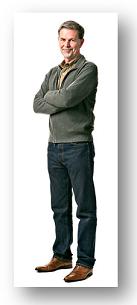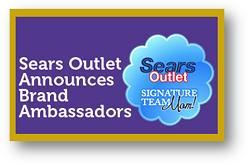 We’ve devoted space on this blog over the past few weeks to analyze the Netflix (Qwikster) debacle. It’s one thing when a radio company chooses an ill-fated format or personality. It’s another when one of the most popular, innovative new media brands in history makes a spectacular miscalculation.
We’ve devoted space on this blog over the past few weeks to analyze the Netflix (Qwikster) debacle. It’s one thing when a radio company chooses an ill-fated format or personality. It’s another when one of the most popular, innovative new media brands in history makes a spectacular miscalculation.
How painful has Netflix’s fall been financially? In July, the stock was at $300. As I write this post, it is just south of $80. But that’s just the money part. What kind of reputational damage has Netflix suffered as a result of this major snafu, highlighted by the loss of 800,000 customers?
In a recent interview in The New York Times with Andrew Goldman, Hastings acknowledged his mistake. When Netflix’s faux pas went public, I questioned what kind of research could possibly have justified this move. And I wondered whether Hastings was, in fact, a product of Steve Jobs’ philosophy, eschewing focus groups as a primitive tool that is unable to predict the viability of products that don’t exist.
Perhaps you’ve read Jobs’ quote from a 1998 Business Week story:
“It’s really hard to design products by focus groups. A lot of times, people don’t know what they want until you show it to them.”
So in reading Goldman’s interview with Hastings, I was stunned by this question and answer segment:
Goldman: I’m curious if you could have done any kind of research — or even a select-market rollout — that could have anticipated this?
Hastings: I don’t know of any Internet service that opens on a regional basis. Our focus-group work concentrated on trying to understand consumers’ perspectives on names other than Netflix.
Holy crap! If you’re reading what I’m reading, Netflix tested the name “Qwikster” but somehow managed to skip over the overall viability of the concept of splitting the company in two, essentially creating two different services, not to mention a steep price hike.
So is this attributable to adherence to “The Tao of Steve Jobs” or is it just arrogance on Netflix’s part?
Like your radio station, Hastings has access to his hard core fans. And unlike your station, there are millions of them who would have been more than happy to have participated in pre-testing beta models and concepts. Netflix is a simple product, making it easy to research changes – assuming that Hastings and his team cared enough to seek the advice of his loyal, rabid clientele.
Your station can avoid these issues, and it can do so inexpensively.
 If you have a station database, you have the ability to query your most loyal listeners, testing everything from music to logos to feature weekends. It’s not just about avoiding mistakes – it is a great avenue to better understand your brand’s equity and what your audience expects and appreciates.
If you have a station database, you have the ability to query your most loyal listeners, testing everything from music to logos to feature weekends. It’s not just about avoiding mistakes – it is a great avenue to better understand your brand’s equity and what your audience expects and appreciates.
Bringing listeners into the station for Listener Advisory Board meetings is a wonderful way to create “eye contact” with the core audience, making sure your next moves are congruent with brand expectations.
And finally, it is time for well-programmed stations to consider “brand advocates” programs, something that we are deeply involved with at Jacobs Media.
This Netflix story doesn’t really create a sense of schadenfreude – feeling good about someone else’s bad fortune. In fact, it’s a shame that a great service-oriented company with a cool concept has gotten itself caught up in a sink hole of its own making.
But it does provide us with a sense of hope that any great radio station can create partnerships with its best listeners to improve its programming and customer service.
Steve Jobs may have had the visionary powers to simply intuit what consumers would want. The rest of us need some guidance, and there are available, simple, and effective ways to get it.
You’re smarter than Netflix.
- What To Do If Your Radio Station Goes Through A Midlife Crisis - April 25, 2025
- A 2020 Lesson?It Could All Be Gone In A Flash - April 24, 2025
- How AI Can Give Radio Personalities More…PERSONALITY - April 23, 2025




Leave a Reply